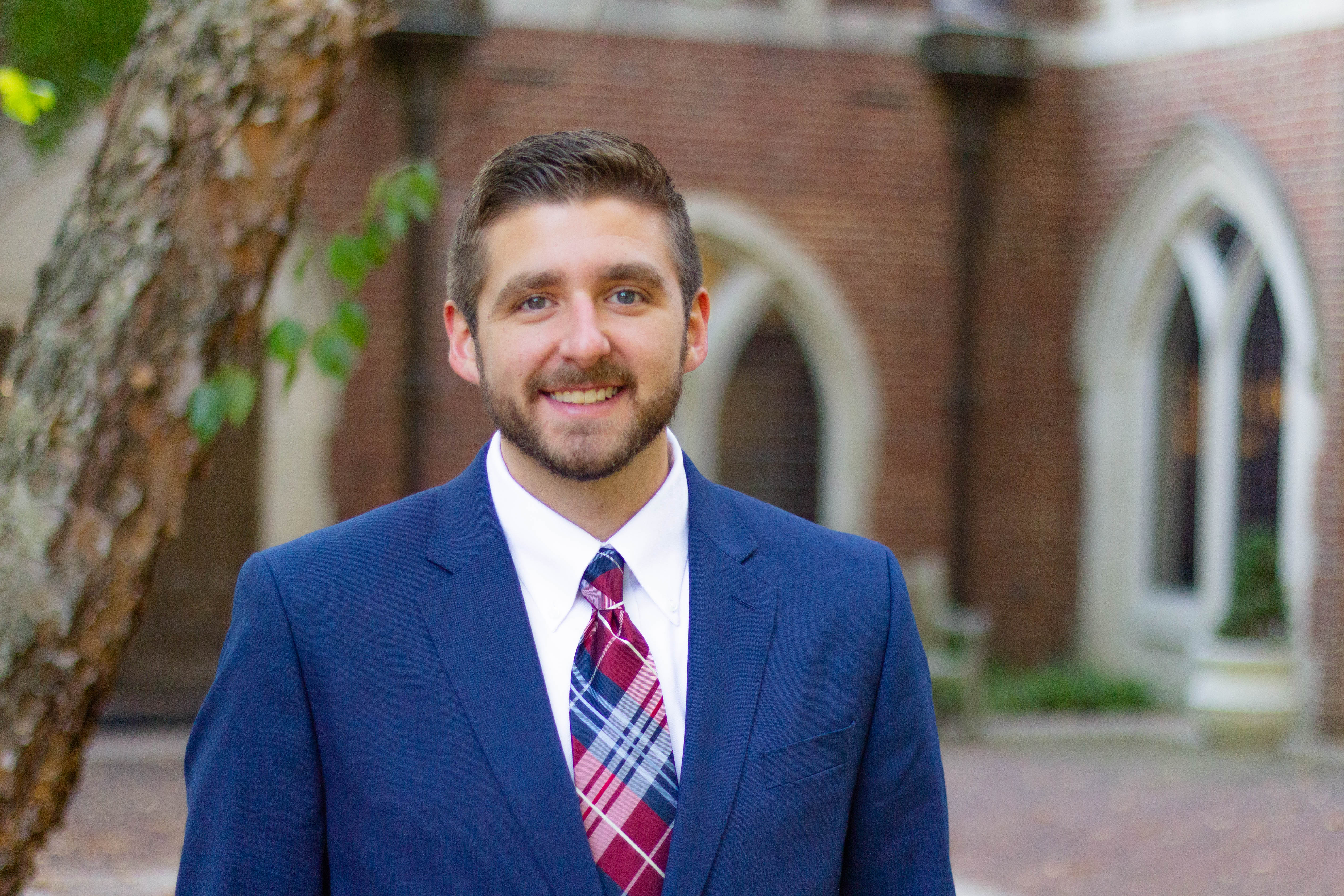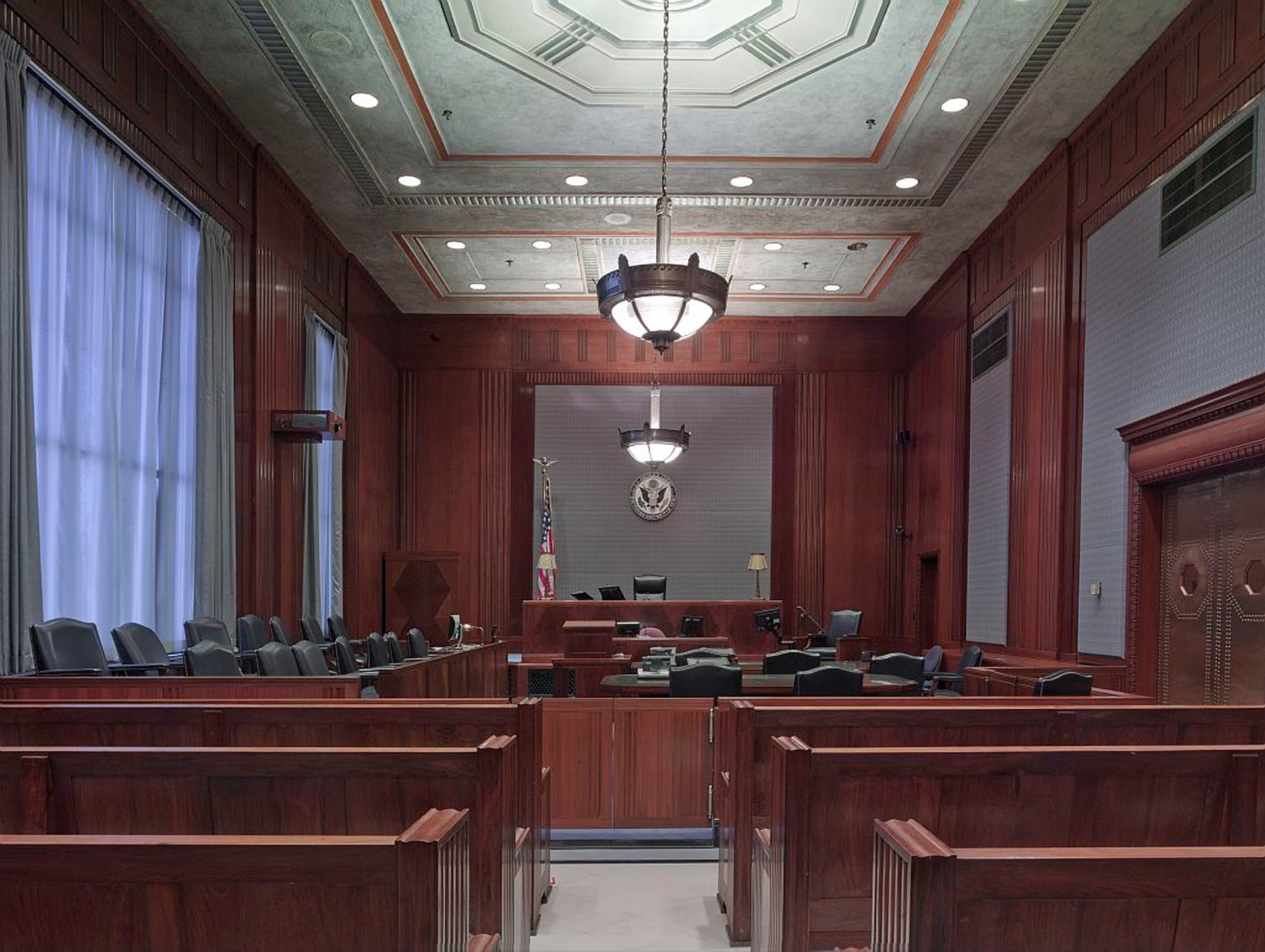
The University of Richmond Law Review is proud to present the thirty-fourth issue of the Annual Survey of Virginia Law. Since 1985, the Annual Survey has striven to provide a comprehensive resource detailing recent legislative, judicial, and administrative changes in Virginia. Today, the Annual Survey is the most widely read publication of the University of Richmond Law Review, reaching lawyers, judges, legislators, and students in every corner of the Commonwealth. In continuing the Annual Survey tradition, we have selected pieces we believe are timely, compelling, and useful to staying informed of relevant legal and social issues.
The University of Richmond School of Law is heavily associated with the legal community of Richmond; many alumni begin their careers right here in town, and some spend most, if not all, of their careers in Richmond. This year, the Richmond legal community lost a distinguished defense attorney and University of Richmond School of Law alumnus Michael Morchower. We are proud to help preserve his legacy with an In Memoriam.
This issue of the Annual Survey of Virginia Law further contains seven articles, each providing summaries of changes in the last year to substantive areas of the law. The topics of these updates include Civil Practice and Procedure; Criminal Law and Procedure; Corporate and Business Law; Employment Law; Taxation; Wills, Trusts, and Estates; and Local Government. Additionally, this issue contains two essays focused on narrower topics in the law, including both an analysis of the downfall of Virginia’s Incumbent Protection Act and an exploration of emotional distress claims in the Virginia workplace. Finally, the Law Review is proud to also include a student comment written by a University of Richmond Law Review staff member, which sheds light on a foster-care-to-prison pipeline in Virginia.
The enduring Annual Survey tradition is made possible only by the commitment and talent of our authors, many of whom contribute to the Annual Survey each year. Each unique piece is the culmination of diligence, resounding expertise, and sacrificed time, all in the name of legal scholarship. I am grateful for these authors’ continued dedication to our publication and the furtherance of the Virginia legal community.
I would also like to extend sincerest thanks to the Law Review staff for their careful editing and commitment to our organization, especially by balancing editing duties with associate positions and internships throughout the summer. In particular, the efforts of our Editor-in-Chief, Ashley Phillips; our Executive Editor, Thomas Dorsey; and my fellow executive board members Athena Dufour, Allison Bohan, Jon Roellke, Kellen Shearin, and Grace Nichols have been invaluable over the last several months. I know that no matter what Bluebook problem keeps me up at night, one of you always has the answer.
I also cannot give enough thanks to both Glenice Coombs and Emily Palombo. Glenice, your enduring commitment and sharp wit keep the wind in our sails, and we would surely be lost without you. Emily, your guidance and continued devotion to the Annual Survey tradition has helped me time and time again, something I am ever grateful for.
Finally, thank you to my wonderful and supportive friends and family, especially my parents, Mark and Connie, and my two older brothers, Jacob and Lucas. Thank you all for your unwavering love and encouragement, and especially to Lucas for allowing me the privilege of featuring your work in our publication. And of course, thank you to Marina Batalias for your steadfast support throughout law school, which helped make all of this possible.
We hope you find the 2019 Annual Survey of Virginia Law valuable, helpful, and thought-provoking. As a lifelong Virginia resident, it has been an honor to serve as the Editor of the 2019 Annual Survey of Virginia Law, and I thank you for your continued readership and patronage.
Matthew L. Pangle
Annual Survey Editor
John W. Luxton, In Memoriam Michael Morchower, 54 U. Rich. L. Rev. 1 (2019).
Click here to download PDF.
In Memoriam Michael Morchower
John W. Luxton*
Magic Mike was programmed by his experiences to be successful. He fought hard but left his fight in the courtroom. He was innovative, daring, and loved his occupation. Although he retired over seven years ago and recently died, we still get calls from potential clients who want to hire Magic Mike. Now that is a legacy.
*J.D., 1974, University of Richmond School of Law; B.A., 1971, Hampden-Sydney College.

Christopher S. Dadak, Annual Survey of Virginia Law Civil Practice and Procedure, 54 U. Rich. L. Rev. 7 (2019)
Click here to download PDF.
Christopher S. Dadak*
This Article’s focus and analysis encompasses the past year of Supreme Court of Virginia opinions, legislation, and revisions to the Rules of the Supreme Court of Virginia affecting Virginia civil procedure. This Article is not meant to be all-encompassing, but does endeavor to capture the highlights of changes or analysis regarding Virginia civil procedure. The opinions discussed throughout this Article do not all reflect changes in Virginia jurisprudence on civil procedure, but also address clarifications or reminders from the court on certain issues it has deemed worthy of addressing (and that practitioners continue to raise). The Article first addresses opinions of the supreme court, then new legislation enacted during the 2018 General Assembly Session, and finally approved revisions to the Rules of the Supreme Court of Virginia.

Rachel L. Yates*, John I. Jones IV**, & Brittany Dunn-Pirio***, Annual Survey of Virginia Law Criminal Law and Procedure, 54 U. Rich. L. Rev. 31 (2019).
Click here to download PDF.
This Article surveys recent developments in criminal procedure and law in Virginia. Because of space limitations, the authors have limited their discussion to the most significant appellate decisions and legislation.

Laurence V. Parker Jr.*, Annual Survey of Virginia Law Corporate and Business Law, 54 U. Rich. L. Rev. 73 (2019).
Click here to download PDF.
This year there were a number of significant legislative changes to the Virginia Stock Corporation Act (“VSCA”) and the Virginia Limited Liability Company Act. Part I discusses certain statutory changes related to Virginia Corporations. Part II summarizes the changes to VSCA, including changes related to ratification of defective corporate acts, appraisal rights in asset sale transactions, multiple changes related to interspecies transactions, improving and making the effect of merger, domestication, and conversion language more uniform, refining the process for abandoning fundamental transactions, regulating the second step merger following a tender offer, modifying the corporate opportunity doctrine, allowing for a court to remove directors, permitting officer reliance, revising provisions related to officer and director indemnification, simplifying the voting information required in documents filed with the State Corporation Commission (“SCC”), regulating the use of forum selection clauses in governance documents, modifying cumulative voting, and modifying shareholder information rights. Part III describes the Uniform Protected Series Act, which Virginia adopted this year as an amendment to its Limited Liability Company Act. Part IV reviews a Supreme Court of Virginia case addressing the statutory safe harbor permitting an asset sale without shareholder approval and the ability to amend that safe harbor.
* Shareholder, Williams Mullen, Richmond, Virginia. J.D., 2003, University of Richmond School of Law; M.B.A., 2003, The Robins School of Business, University of Richmond; B.A., 1995, University of Virginia.

Bret G. Daniel* and Erin B. Edwards**, Annual Survey of Virginia Law Employment Law, 54 U. Rich. L. Rev. 103 (2019).
Click here to download PDF.
Virginia has historically been regarded as an employer-friendly jurisdiction. However, in recent years, the Fourth Circuit Court of Appeals has issued an increasing number of opinions that tend to favor employees. With a state legislature largely reluctant to interfere in the employer-employee relationship, developments in employment law generally occur via Fourth Circuit jurisprudence. Given the predominance of federal employment law in Virginia, the following discussion regarding developments in this practice area focuses less on state statutes and courts, and more on decisions handed down from the federal bench.
This Article provides an update on recent developments in employment law in Virginia. It does not attempt to capture every change in the law, but instead focuses on significant developments in this arena. Part I of the Article discusses noteworthy shifts in Fourth Circuit jurisprudence regarding: the Equal Pay Act, Title VII of the Civil Rights Act, the Americans with Disabilities Act, and the Fair Labor Standards Act. Part II of the Article contains a brief update on state-specific statutory and case law developments regarding military leave, data privacy, employee access to personnel records, and Virginia’s unique flavor of wrongful termination—Bowman claims.





